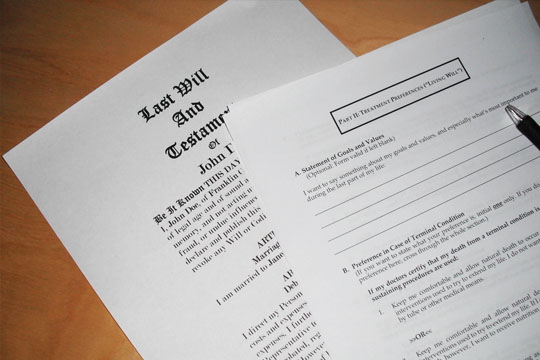Featured Post
Do Not Try To Probate Alone…

We’ve all heard the old adage “Don’t try this at home.” The same holds true for administering an estate without the knowledge and guidance of a trained estate planning attorney.
While in my many years of practicing in the estate administration field, I can tell you stories of how someone’s attempt at settling an estate on their own caused more trouble than it was worth, even if they had the purest of intentions.
Why does someone choose to forego legal counsel when so much is at stake? Quite simply: Cost. Attorneys aren’t cheap. But would you believe it if I told you that an executor who chose to go at it alone was merely attempting to see her father’s wishes borne made a mistake which created a $2,000 error. This executor didn’t cause the oversight because she had ill will toward her siblings but simply because she didn’t know what she was doing. Normally such a minor miscalculation wouldn’t cause an issue if corrected and explained but due to the nature of the relationship she had with her sibling who was one of the beneficiaries, litigation ensued!!! A $2,000 blunder caused a $30,000 litigation nightmare.
An executor’s job is to oversee the management of the estate until the assets are disposed of and the estate is closed. Another important note, executors must keep in mind is that should they, for lack of a better phrase, screw up, and don’t quickly remedy the matter, they are personally responsible and liable. The process of settling an estate is long and detailed, typically lasting well over a year. With the help of an experienced attorney, you reduce personal liability and hand over the responsibility of procedure to the attorney.
We see the worst in people when death and money are involved. Don’t allow your family to fracture because you are unwilling to admit and accept that you need help.
An executor must account for distribution of assets to the probate court. He/she must file an inventory and receipts proving that they paid out the correct share of the estate to the correct creditors and beneficiary(ies). An attorney can prepare all of the legal documentation, but the executor must sign off on the documents. If an executor is not fulfilling their legal obligations, the heirs or an attorney representing the heirs, may petition the court to have the executor removed.
Please think twice before attempting to settle an estate on your own. In the long run, the attorney’s fees are not only ensuring the estate is settled timely and correctly but also provides the executor and beneficiary(ies) peace of mind and allows them to grieve during this difficult time.
Photo Source: Flicker



